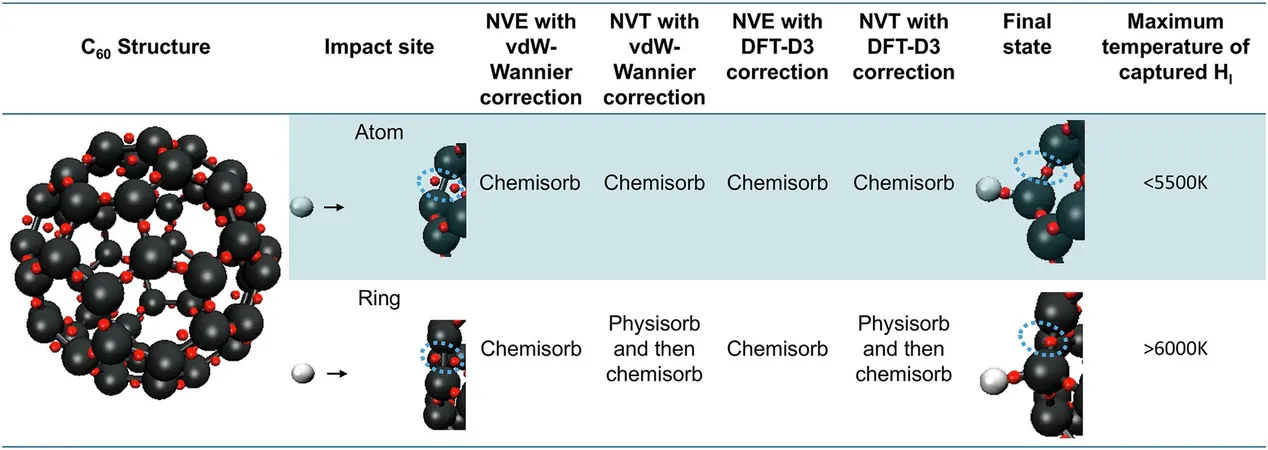
Unlocking the Secrets of Space: How Dust May Create Molecular Hydrogen
2025-04-23
Author: Daniel
A Breakthrough Study from The University of Sydney
In an exciting discovery, materials physicists from The University of Sydney, Yuzhen Guo and David McKenzie, have proposed a groundbreaking explanation for the abundant presence of molecular hydrogen in the cosmos. Their research, featured in Communications Chemistry, investigates the role of space dust as a potential catalyst for the fusion of hydrogen atoms into molecular hydrogen.
The Cosmic Puzzle of Hydrogen's Abundance
For years, astronomers have been baffled by the sheer volume of molecular hydrogen scattered across the universe. It’s a cosmic conundrum: how do solitary hydrogen atoms find each other in the vast expanse of space? This study suggests that space dust might hold the key to this mystery.
Using Fullerenes to Simulate Space Dust
To explore this theory, the researchers utilized fullerenes—spherical molecules composed of 60 carbon atoms—as analogs for space dust. These fullerenes share critical characteristics with cosmic materials, making them an ideal candidate for the experiment.
Innovative Simulations Reveal Potential Bonding Mechanisms
The researchers developed a computer model to simulate the interactions between hydrogen atoms and fullerenes in two different scenarios. In the first, two hydrogen atoms loosely adhered to the fullerene moved around and ultimately collided. In the second scenario, a free-floating hydrogen atom struck one bonded to the fullerene.
Remarkably, their findings showed that in both scenarios, the hydrogen atoms bonded, resulting in the formation of molecular hydrogen. The energy released during these collisions was absorbed by the fullerene, preventing any reversal of the newly formed bonds.
Conditions for Molecular Hydrogen Formation
The study revealed that these bonding events could occur at temperatures reaching as low as 10 K and even at moderate temperatures of 50 K, indicating that hydrogen molecule creation is feasible across a range of cosmic conditions. This suggests that even in the chill of space, molecular hydrogen can form more readily than previously thought.
Implications for Our Understanding of the Universe
This research not only sheds light on the formation of molecular hydrogen but also deepens our understanding of the fundamental processes at play in our universe. As scientists continue to unravel the complexities of space, this novel insight could pave the way for further discoveries related to cosmic chemistry and the origins of the universe.



 Brasil (PT)
Brasil (PT)
 Canada (EN)
Canada (EN)
 Chile (ES)
Chile (ES)
 Česko (CS)
Česko (CS)
 대한민국 (KO)
대한민국 (KO)
 España (ES)
España (ES)
 France (FR)
France (FR)
 Hong Kong (EN)
Hong Kong (EN)
 Italia (IT)
Italia (IT)
 日本 (JA)
日本 (JA)
 Magyarország (HU)
Magyarország (HU)
 Norge (NO)
Norge (NO)
 Polska (PL)
Polska (PL)
 Schweiz (DE)
Schweiz (DE)
 Singapore (EN)
Singapore (EN)
 Sverige (SV)
Sverige (SV)
 Suomi (FI)
Suomi (FI)
 Türkiye (TR)
Türkiye (TR)
 الإمارات العربية المتحدة (AR)
الإمارات العربية المتحدة (AR)